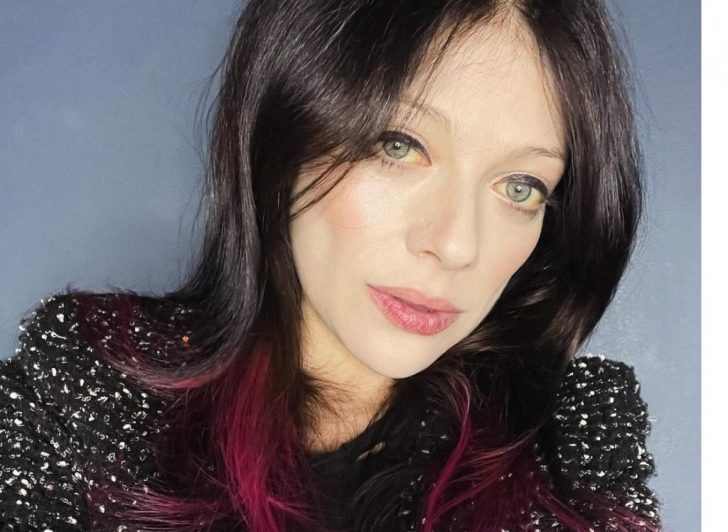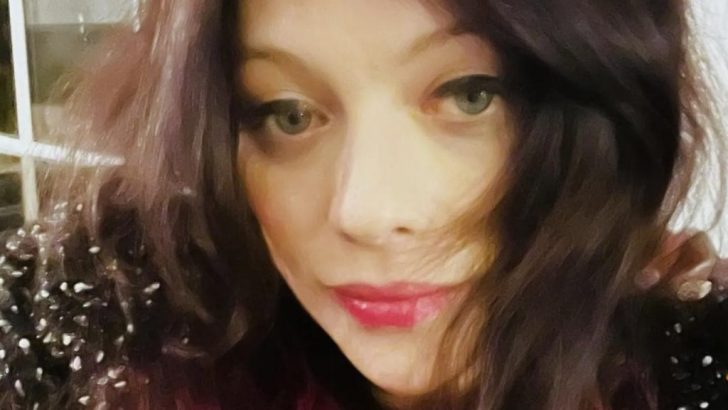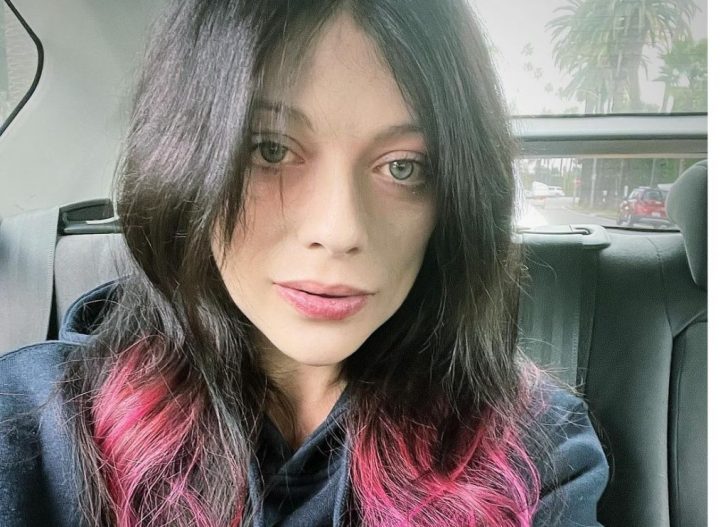In an era where every pixel of a public figure’s image is magnified and scrutinized, Michelle Trachtenberg’s recent encounter with online critics over her appearance underscores a broader societal challenge. Best known for her role as the enigmatic Georgina Sparks on “Gossip Girl,” Trachtenberg found herself the target of unwelcome comments concerning the natural coloration of her eyes.
At 38, her response to these critiques was not just a mere reply. It was a profound commentary on self-acceptance, the pervasive issue of body shaming, and the relentless pressures of Hollywood beauty standards.

The spark that ignited this discourse was a seemingly benign query from a follower, concerned or perhaps unwittingly critical, about the lighter shade of Trachtenberg’s eyes, veiled in the guise of concern with a simple, “Are you OK?” This moment, though small, peeled back the curtain on the larger, often toxic arena of public scrutiny that celebrities face. A place where even the most natural aspects of their appearance are put under the microscope and judged.
Trachtenberg’s Empowered Response
In her response, Trachtenberg did not just address the comment. She dismantled the underlying assumptions it carried. Asserting that she is “not 14” but a mature 38-year-old woman, she boldly redirected the conversation from her appearance to a reflection on the critic’s behavior.

However, this was not just about defending her looks. It was about challenging the audacity of unsolicited judgments and the skewed perceptions of aging and beauty in society.
Public Scrutiny & Celebrating Imperfections
Trachtenberg’s experience is a vivid illustration of the broader implications of living in the digital age, where celebrities and everyday individuals alike are subject to relentless scrutiny over their appearances. It raises pertinent questions about the impact of such scrutiny on personal identity and self-esteem, particularly in an environment that often equates worth with physical appearance.

Trachtenberg’s stance against undergoing plastic surgery to alter her appearance is a powerful affirmation of self-acceptance. It is a counter-narrative to the prevailing trend of seeking physical ‘perfection’ through cosmetic alterations, emphasizing the beauty inherent in embracing one’s natural self.
Her stance is a call to celebrate the quirks and ‘flaws’ that make us uniquely ourselves. It challenges the ‘homogenized standards’ of beauty that pervade the entertainment industry and society at large.
Hollywood’s Ageism and Beauty Standards
The incident also shines a light on the insidious ageism that exists within Hollywood, where aging, especially for women, is often portrayed as a decline rather than a natural progression of life. Trachtenberg’s assertive response is a critical voice in the conversation about these unrealistic standards. Thus, advocating for a more inclusive representation of beauty that transcends age and embraces the natural aging process.
Michelle Trachtenberg’s handling of the situation exemplifies the resilience required to navigate the treacherous waters of public life. It is a testament to the inner strength needed to maintain one’s sense of self amidst the barrage of public opinions and expectations. Her response serves as an inspiration for individuals to hold their ground and assert their worth beyond superficial assessments.



